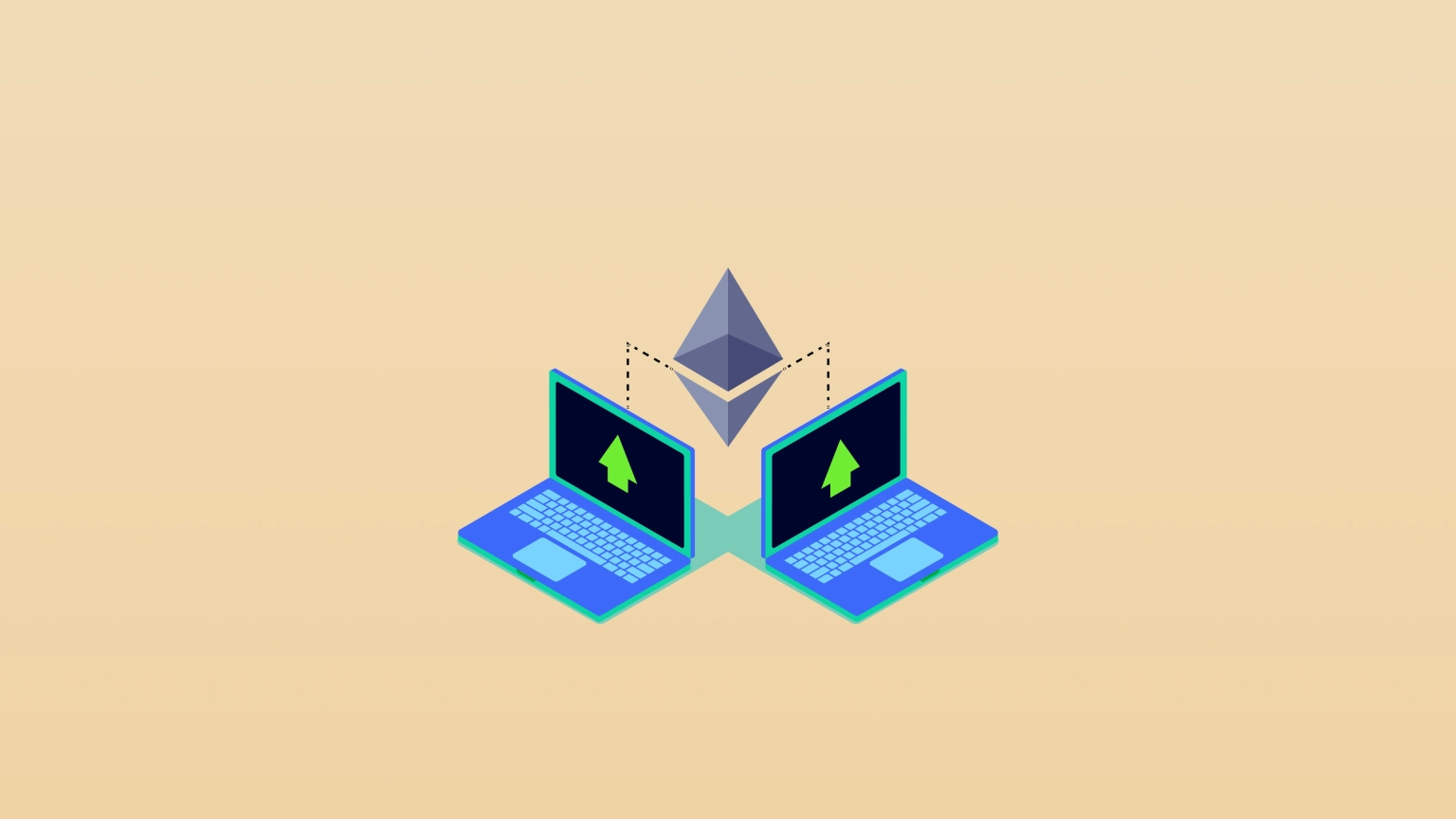
Collaboration between Neptune Mutual and SushiSwap
Explore Neptune Mutual's ongoing collaboration with SushiSwap offering several benefits.
Youtube Video
Playing the video that you've selected below in an iframe

A blog on Dencun upgrade, the upcoming Ethereum upgrade focused on improving scalability.
Ethereum stands as a major player, leading the space with its innovative capabilities in the ever-growing realm of blockchain. Though it’s housing a variety of dApps, layer 2s, and tokens, it has its downsides like any other pioneering technology.
Scalability and throughput have long been pain points for this blockchain giant, often hindering its full potential. Recognizing these limitations, the Ethereum community has been relentless in its pursuit of evolution and enhancement. For instance, the move to Proof of Stake addressed some concerns about the energy consumption of the blockchain. A series of transformative upgrades, each promising a better and more efficient Ethereum. Among these, the most anticipated and game-changing is the "Dencun Upgrade".
This introduction to the Ethereum Dencun Upgrade will delve into the significance of this update, shedding light on its potential to redefine the landscape of Ethereum's blockchain capabilities.
The Dencun Upgrade is an upcoming update of the Ethereum blockchain that aims to improve the scalability, security, and usability of the Ethereum network.
The name “Dencun” is an amalgamation of the names of the hard forks planned for Ethereum's consensus layer (Deneb), and the execution layer (Cancun).
The most important feature of the upgrade is Proto-Dank Sharding, also called the Ethereum Improvement Proposal (EIP-4844). It aims to address scalability, one of the key challenges faced by Ethereum developers and users. Proto-Danksharding uses a technology that can store more data in rollups, leading to reduced gas fees and increased throughput.
In addition to these new data blobs, there are other improvements, including tweaks to the opcodes used in smart contracts. These changes can be split into two categories: ones that are focused on the consensus layer, and ones that are focused on the execution layer.
As mentioned earlier, Proto-Dank Sharding is the main component of the Dencun upgrade. It's an intermediate phase prior to full implementation of Dank Sharding, a process that aims to scale Ethereum significantly.
Proto-Dank Sharding introduces a new transaction type in Ethereum that can handle data "blobs" that allow storing large volumes of data. This is expected to reduce gas fees and increase transaction throughput, resulting in Ethereum being more scalable and efficient.
It's widely accepted that rollups and/or ZK rollups are currently the only viable solution for the trustless scaling of Ethereum. Proto-Dank Sharding offers additional cost savings and is intended as a stopgap solution to further reduce fees without sacrificing too much in the way of security.
Layer 2 solutions such as Optimism and Arbitrum already offer significant speed and cost savings (3–8 times lower than the base layer), making them popular with traders who wish to transact frequently. EIP-4844 promises to increase Ethereum's scalability to the point that it surpasses the performance of those existing Layer-2 solutions. It uses temporary storage and retrieval of off-chain data to help improve the performance of blockchain applications while still providing the security and verifiability that make blockchain so valuable.
This coming fork will make several changes to both the execution and consensus layers. Let's consider some of the key changes:
The Ethereum Foundation has been taking a cautious approach to the upgrade. While it includes multiple changes to both the execution and consensus layers, these changes will be backward-compatible. This means that the changes being introduced will not break or disrupt the existing applications, contracts, or processes running on the older version of Ethereum.
The Dencun upgrade stands to be a game-changer for decentralized exchanges (DEXes) and applications (dApps) on the Ethereum network. Central to this is EIP-4844's Proto-Dank Sharding, which aims to drastically cut the high gas fees that have hampered DEXes and dApps, enabling faster, more affordable transactions. This means quicker trades for DEXes and a smoother user experience for dApps.
EIP-1153's optimized data storage system promises enhanced performance, which is crucial for dApps that handle vast amounts of data. Meanwhile, EIP-4788 boosts Ethereum's interoperability, ensuring seamless cross-chain trades for DEXes and broader integration for dApps. Additionally, security measures, like EIP-6780, fortify these platforms against vulnerabilities.
The Ethereum Dencun Upgrade was originally planned to be released in late 2023; however, the release may be delayed until early 2024. At the Ethereum Consensus-Layer Meeting in September, the meeting chairman, Ethereum Foundation's Tim Beiko, expressed concerns that the upgrade would need to make it to the public testnet before the November DevConnect event; otherwise, the mainnet activation could be delayed until after the Christmas holidays.
Dencun has already been extensively tested on a localized developer testnet known as Devnet 9. The upgrade will likely be the very last major Ethereum fork to be available on the Goerli testnet before that testnet is retired.
A new testnet, Holesky, which is set to replace Goerli, was going to be released on September 15th. However, the launch of the Holesky testnet failed, in part due to some mismatched data in the network's genesis files. Holesky eventually launched successfully on September 28.
Neptune Mutual is a protocol built on Ethereum, so we are excited to see what the Dencun upgrade will bring. We expect that the upgrade will be a crucial turning point for Ethereum developers and users. With Ethereum becoming more secure, scalable, and affordable, it will be beneficial to not only us but all the projects based on the chain.
We'd like to invite you to check out the Neptune Mutual Marketplace. Our parametric insurance cover pools give dApp developers a way to protect their users and the investments they have put in.
We have a cover marketplace on Ethereum, Arbitrum, and BNB Smart Chain where you can create cover for your DeFi, CeFi, or Metaverse projects. You can also integrate our pools into your applications on the Ethereum Mainnet and Arbitrum to allow your users to purchase covers easily without leaving your dApp. Contact us today to get you started.